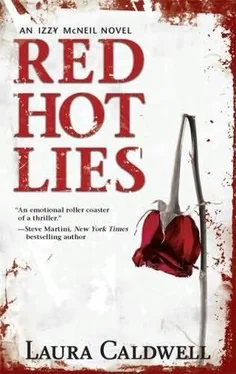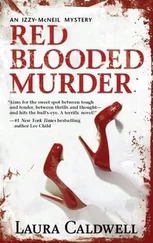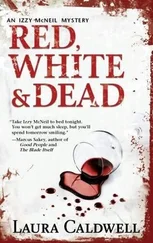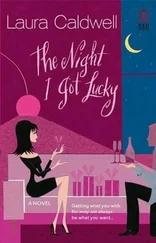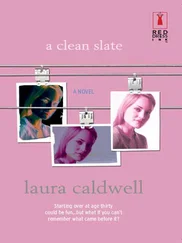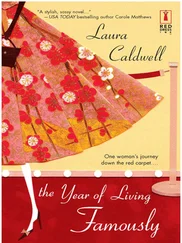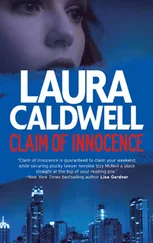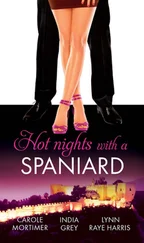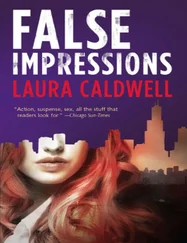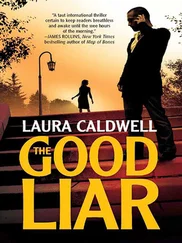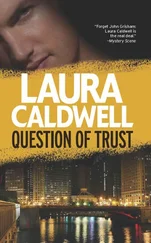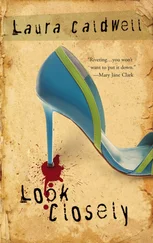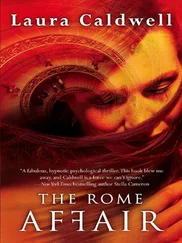“Sam wouldn’t steal from Forester,” she said in a strangled voice. My mother loved Sam.
“I know. That’s what I think, too, but with him gone, with no other explanation…” I threw my hands up. “I don’t know what to believe.”
“Oh, Izzy, baby.”
The words were said with such feeling, and my mother’s eyes fixed on me like never before. We sat like that-two women who’d always thought themselves so different from one another, suddenly had so much in common.
My mother opened her mouth to speak again, when Maria stuck her head in the fitting room. “You ready now?” Her irritation was undisguised. She’d had enough of this.
“I don’t know,” my mother said. She grabbed my hand. “Do you want to do this?”
I sucked in a breath and thought about it. The doubts about Sam were starting to flood me, but I hated that. At my core, I believed he was a good man, but the evidence seemed so far the other way. I reminded myself the case wasn’t over. All the evidence wasn’t in yet. And so I would go forward, for now, with the wedding that just yesterday I didn’t think I wanted.
“Yeah, I do.”
I disentangled myself from my mom, gathered the cool, heavy satin skirt in my hands and climbed onto the pedestal.
Maria was already surveying me, pins at the ready on her wrist cushion.
Just then, my cell phone bleated from my purse. I jumped off the pedestal and scrambled for it.
Maria mumbled something in Spanish that I guessed were curse words.
Instead of Sam, cell, the display on my phone read, Unknown.
I answered it.
“Isabel McNeil?” It was a woman’s voice, calm and confident. “This is Andi Lippman with the FBI.”
I sat down hard on the pedestal. I felt bad news looming, large and black.
Maria cursed again and took the pins out of her mouth. My mother mouthed, “What is it?”
“Ms. McNeil? I’m calling about Sam Hollings.”
“Is there any news?”
“The FBI is investigating the matter of the shares owned by Forester Pickett, which are missing from Carrington & Associates.”
I blinked fast. The FBI, I thought. Once again, I was hit with how real this was, how severely momentous. “Have you heard anything new?”
She paused. “Well, I’m not exactly sure what you know and what you don’t. I’d like to meet with you in person.” She mentioned an address on Roosevelt Avenue. “Tomorrow at eleven.”
I rooted in my purse for my date book. Most people I knew kept their calendars on their BlackBerries or computers, but I liked the old-fashioned hard copy. I liked seeing my months, my weeks, my daily appointments laid out and organized in front of me.
I found the date book-thin with a maroon cover embossed in gold. A gift from Forester, I suddenly remembered. “One second, please.” I cupped the phone between my ear and shoulder and rifled through the pages for the end of October. I tried to think whether I had any meetings tomorrow, maybe a court call.
But as I reached the right page, everything blurred in front of me, because I realized it didn’t matter. Whatever I had to do tomorrow wasn’t important, not even a little bit, compared to Sam. And Forester.
I closed the book. “I’ll be there.”
Sam Hollings walked down Duval Street, sidestepping a woman sitting on the curb, talking on her cell phone, then one block later a pack of college kids pouring out of a bar, all drunk and happy and loud.
Sam gave the kids a wide berth. He hated how far away from them he felt, how much older. He easily remembered when getting loaded on a Wednesday night was not uncommon. God, the simplicity of those days, so unappreciated at the time. He was grateful for it now, feeling ancient and well past them.
He would have to remember to write in his journal about this sudden feeling of being old. He’d packed the journal, knowing he might be alone for a while, knowing the things he used to talk about to Izzy would have to remain silent, without a listener.
He kept walking up Duval, looking for a restaurant that wasn’t bellowing Jimmy Buffett, one that didn’t scream its name in neon lights. He was exhausted from the two days of driving, and he wanted something quiet and comfortable. But finding this was more difficult than he’d thought.
He and Izzy used to talk about coming to Key West. They’d expected it to be charming and eccentric. Being here, it felt more like a Disneyland version of the Key West they’d envisioned. The commercialization of the place was rampant-each place boasted specialized frozen drinks and key-lime pie. The T-shirt stores bled one into another.
Finally, Sam found a restaurant in an old house set back from the street and flanked by a wraparound porch. He accepted a menu from the maître d’ and allowed himself to be seated outside, his back to the door. He started to order a Blue Moon beer, then changed his mind. He drank Blue Moons with his buddies, with Izzy. He drank Blue Moon when he was happy. His Blue Moon days were over for now.
He ordered a glass of cabernet. Cabernet was what his asshole father used to drink. It felt, vaguely, as if he was punishing himself by ordering such a glass. When the glass was delivered, he stared at the blood-red of the wine, thinking about his dad, wondering if there was a reason he had used his fists on his family. It struck Sam now, in the middle of what he was doing, that maybe there were complicated reasons for just about any bad act. Maybe, for example, his father, by being a fighting man, was taking out frustrations that none of his family could understand, that no one could understand.
That might be true, Sam realized. His father might have had his own reasons for acting the way he did. There was a reason, for example, why he was here. He had to hang on to that idea, because it was too late to turn back now.
That night, with the bedside lamp the only light on in the house, I lay awake for a long, long time, Sam’s side of the bed vast and cold. I tried to think of real possibilities about where he could be, of what had happened to him. I thought of Maggie earlier, saying he could be dead. Wasn’t it only realistic to acknowledge this could be true? I wanted, desperately, to be logical. If I applied logic, maybe this wouldn’t hurt so much, maybe it wouldn’t be happening, maybe I could simply figure it out.
And right then, I was able to think logically about Sam being dead. I batted the concept around in my head. I imagined him, eyes closed, arms crossed over his chest. He’d be wearing the awful suit with the naval buttons his mother had bought him. His hair would be parted wrong.
Imagining this was easy because, the truth was, I didn’t believe it. I didn’t have any innate sense that the man I’d spent the last few years with was no longer in this world.
It was more likely that Sam was not dead, but rather sunning his annoyingly cute ass in Panama somewhere. I tried to imagine what Panama looked like. Jungly, perhaps? I saw Sam in a safari tent, attended by local women in Tarzan-like getups. Or was it beachy? I pictured Sam on a plush lounge chair, facing out toward crashing, blue waves, the bright sun turning his hair white. While he sat, he was counting the money he’d made-stolen, I should say.
I turned over in bed and pushed my face into the pillow. Was that true? Was Sam out there, wherever that was, already moving on to a new life? A new identity? A new girl? It didn’t sound like the Sam I knew. And I could have sworn I knew that guy inside and out. But then maybe you can’t know everything about a person. He hadn’t known, for example, that I was scratching at the walls of my own wedding, wanting out. I hadn’t said anything; I hadn’t even written an e-mail-This thing is getting to me. What about you?
Читать дальше
Конец ознакомительного отрывка
Купить книгу
